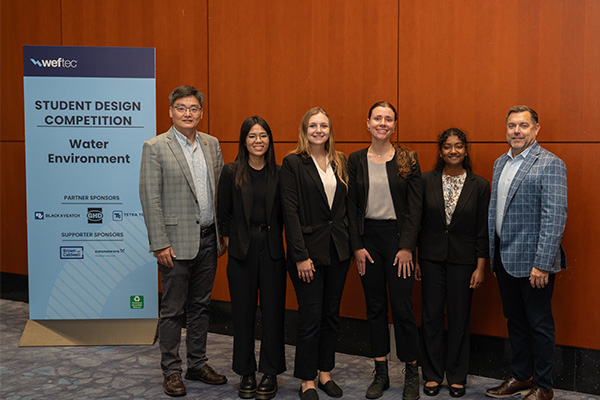Message to the McKelvey Engineering community
Dean Aaron Bobick asks: "How can we as engineers contribute to a solution to this compelling social challenge?"

To the McKelvey community:
By nature, I am an optimist. While our wrestling with the COVID-19 pandemic is far from over and while the devastating toll on our communities continues to rise, I do believe that science and health care will find a strong solution. It won’t be soon, and it won’t be without further loss, but I believe it will come. Maybe that is the engineer in me: once you understand the fundamentals of the problem, you can find a strong solution.
But the pain that we see now both in the streets of our community and across the nation will not be eliminated by a vaccine. The cause of that pain has shown a persistence that defies easy explanation. These challenges confound a history of racial tensions with a growing disparity in resource amongst communities with a tradition of police authority that does not derive its strength from the trust of the community but from a position of power. The question then emerges: How can we as engineers contribute to a solution to this compelling social challenge?
Over the last week, I asked several of our colleagues what we in McKelvey might do. While I personally felt a combination of sadness, anger, and bewilderment, it did not seem to me that my sharing those sentiments would help in any meaningful way. But one of our faculty members made a comment that I wanted to share: “I think this would be a great time to formally engage [critical race scholars and Black social movement leaders] on how McKelvey Engineers can achieve racial justice inwardly and outwardly.“
I thought the last phrase – inwardly and outwardly – was truly compelling. WashU has for the last several years had some strong inward facing efforts focusing on racial awareness and justice. The need for such programming is clear to me when, for example, I hear McKelvey faculty or staff express the belief that COVID-19 has not touched many of us personally. They need to expand their horizons as COVID-19 has devastated many in the Black neighborhoods of St. Louis. We in McKelvey will continue to support such inward facing programs and this coming year we will work to explicitly bring some of that programming to McKelvey instead of us merely “going over there” to participate.
But it is the outward facing aspect that I want to consider today. The focus outward requires broader engagement. One effort that we continue to push is to increase the number of underrepresented minority students who receive an engineering education from our undergrad and graduate programs along with the joint program we run with the University of Missouri St. Louis. These endeavors do indeed improve the socioeconomic conditions of people of color. Additionally, in our research we address challenges faced by the Black community such as understanding and addressing data racial biases and seeking to eliminate health disparities.
But although these efforts are important, they do not do enough to connect many of our students and faculty to minority communities.
Yesterday I had a compelling conversation with Dean McKay from the Brown School in considering what McKelvey might do. We are going to explore how we might bring Brown School and McKelvey students and faculty together to invest more in partnership with our local community. This will not only give our students and faculty an opportunity to contribute, it will expose them to the strengths, resilience, perspectives and diversity of people and environments that surround us. It does not immediately solve any of the challenges that people are protesting in the streets, but it is an opportunity to deepen our engagement and collaboration with our neighbors in St. Louis. At the moment, this is only an idea. But I am committed to turning this idea into action. If this is an effort you wish to be part of, please let me know. You can help us help make a difference.
In closing, I want to say to members of our community who identify as Black or a person of color that I am truly sorry about the anguish you feel. I want to say to white allies that we must thoughtfully align, support and lead in efforts to eliminate distress and harm. And all of us want McKelvey Engineering not only to be better, but to do better. I look to everyone to join in helping us nurture change.
Dean Aaron Bobick



